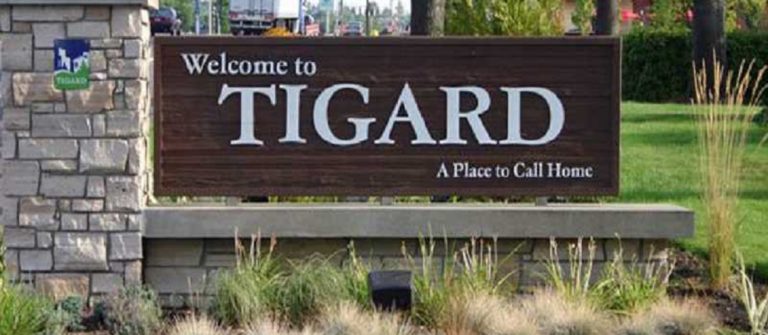IGEL Blog

IGEL Ensures Smooth Running Computing for City of Tigard
The IGEL next-gen operating system for cloud workspaces delivers standardization, simplification and improved end user experience
With aging PCs and a complex IT environment generating increasing helpdesk requests, the City of Tigard has turned to IGEL and its next-gen operating system to standardize and simplify its end user computing environment for a smooth-running City campus.
“We are a small IT shop and wear every technological hat here at the City,” said Mike Nolop, IT Manager, City of Tigard. “Almost every department’s IT system was unique, running on different operating systems and with very old hardware. We had no standardization and as a result were a very reactive IT department.”
Since its incorporation in 1961, the City of Tigard has grown to become a desirable and affordable community in the Portland metro area. Its more than 53,000 city residents enjoy access to more than 16 miles of paved trails and nearly 550 acres of parks and open spaces. With roughly 350 full-time, part-time, and temporary staff, the City has helped create a diverse economy, strong schools and outstanding parks, making Tigard one of the most liveable cities in Oregon.
VDI to standardize
The team took the decision to move from a Windows client server computing model to a modern Citrix Virtual Desktop Infrastructure (VDI) environment to bring standardization to City employees and to provide consistent services across the organization.
Following the deployment, the team still faced challenges. We were running Citrix virtual desktops on top of aging Windows PCs and this effectively required double management,” said Keelan Cleary, Sr. Network Administrator, City of Tigard. Users were having to log in twice, to both the Citrix virtual desktop and their Windows PC, before starting work. They were also still able to access their desktop PCs for personal applications, removing the management and security benefits of standardization.
IGEL extends hardware life
After investigation, the team realized that they could use IGEL to standardize the desktops and end user computing environment without having to invest in new hardware. They first tested the concept using the IGEL UD Pocket. No larger than a paper clip, UD Pocket can be slotted into the USB port of any PC, laptop or any compatible x86, 64-bit CPU based endpoint device and boots the IGEL Operating system. Once the user has finished accessing the IGEL Universal Desktop through the UD Pocket, they could simply remove it and reboot to return to using their local device desktop.
After the successful trial, the team began permanently converting all of its Windows desktops to IGEL OS endpoints; starting with soon to be end of life Windows 7 devices. IGEL OS 11 is purpose-built for enterprise access to virtual environments of all types. Currently in its 7th generation, the IGEL OS is revolutionizing computing by standardizing desktops for simple configuration and granular control, while giving users a familiar, trouble free workspace.
“It immediately increased reliability and all the issues we were experiencing on the underlying system disappeared, simplifying our support requirements,” said James Christopherson, Network Administrator, City of Tigard.
One example was the city library, where a USB-connected RFID reader for checking books in and out had stopped working because of incompatibility issues with the Windows PC and Citrix. Once the desktop was converted to an IGEL OS endpoint the system worked.
“It enabled us to simplify and standardize our VDI roll-out to all departments,” said Christopherson.
IGEL for high-end graphics applications
In addition to the conversion of existing PCs, the team is deploying IGEL UD2 endpoints to the Community Development Department, the Design team, and others that require NVIDIA graphics. These devices are ideal for handling their high-end graphics applications, for example, for CAD engineering drawings or for the graphic design of marketing materials.
Today, the City of Tigard’s virtual desktops are delivered to the IGEL OS endpoints using Citrix, backed by VMWare’s Hypervisor and vSAN Storage Platform. Liquidware is used for profile management, so that everyone’s settings can easily follow them from one desktop to another.
The IT team then uses IGEL Universal Management Suite software (UMS) to centrally manage the physical desktop hardware. Purpose-built to simplify complex enterprise environments, the IGEL UMS supports diverse operating systems, databases and directories. This smart, simple and secure management software lets IT easily manage any remote endpoint, from just a few to tens of thousands from one single console.
Christopherson said using the IGEL UMS was much simpler than updating its previous Window PCs using System Centre Configuration Manager (SCCM). “We used to use SCCM with mixed results but with the IGEL UMS it’s very different. It’s much simpler and faster to roll-out new devices and roll-back and correct any unwanted changes.”
Multiple benefits
The benefits of the IGEL deployment are very clear to everyone involved in the project at the City of Tigard. “It has brought standardization and simplification,” said Nolop. “On the IT side, we can easily manage the entire desktop ecosystem and there is much less troubleshooting. The user also benefits from the same high-quality experience, every time, wherever they are working. The users are no longer locked to their hardware. They can move around, for example, moving from a front desk to a conference room and still have access to the same virtual desktop and session. And if something fails, we can instantly change the desktop without having to manage a stack of inventory.”
In addition, the conversion to an IGEL OS has helped the City of Tigard deal with the looming issue of End of Life Support for Windows 7. With the move to IGEL, there is no need to migrate their devices to Windows 10.
Connecting mobile workers
Moving forward, the organization is exploring the possibility of using IGEL Cloud Gateway to connect its mobile workforce, such as Parks and Utilities field crews, to the IGEL desktops, as well as increasing the deployment of virtual applications.
To watch full details of the City of Tigard’s success using IGEL, watch this video.


